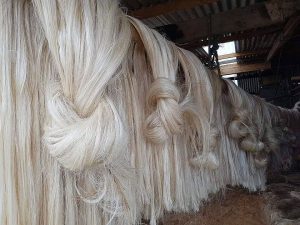Agri dep’t pushes BSP for continued use of abaca fiber in PHL banknotes

Agri dep’t pushes BSP for continued use of abaca fiber in PHL banknotes – BusinessWorld Online
THE Department of Agriculture (DA) said on Sunday that it will seek to reverse a central bank decision halting the use of abaca fiber in Philippine banknotes.
“We will request that the Bangko Sentral ng Pilipinas (BSP) reconsider its decision to remove abaca fiber from Philippine banknotes, given the impact this decision has on the livelihoods of millions who rely on the abaca industry,” Secretary Francisco Tiu Laurel, Jr. said in a statement
“We will also urge the Department of Foreign Affairs to incorporate abaca fiber into Philippine passports and ask other government agencies to consider its use in official documents,” he added.
The BSP in December said polymer banknotes help in “significantly reducing replacement costs.”
Polymer notes have a lifespan of 7.5 years compared with the 1.5 years for paper banknotes, it said.
Abaca, also known as Manila hemp, is indigenous to the Philippines, accounting for 86% of the global supply in 2023.
The abaca industry generated an average annual export revenue of $139.2 million between 2013 and 2024, with 18% derived from raw fiber and 82% from manufactured products, primarily pulp.
“Nearly all abaca pulp produced in the Philippines is exported,” the DA said.
Abaca production fell to about 40,000 metric tons (MT) in 2024, from 61,100 MT in 2023. In 2022, production fell by 5.7% year on year to 63,640 MT.
“As the world’s largest supplier of abaca, we have a responsibility to ensure that more of this valuable resource is available to support both the environment and local farmers,” Philippine Fiber Industry Development Authority Executive Director Arnold I. Atienza said.
He said the 120,145 farmers engaged in abaca cultivation are among the poorest in the country, earning an estimated annual gross income of less than P40,000. — Kyle Aristophere T. Atienza




